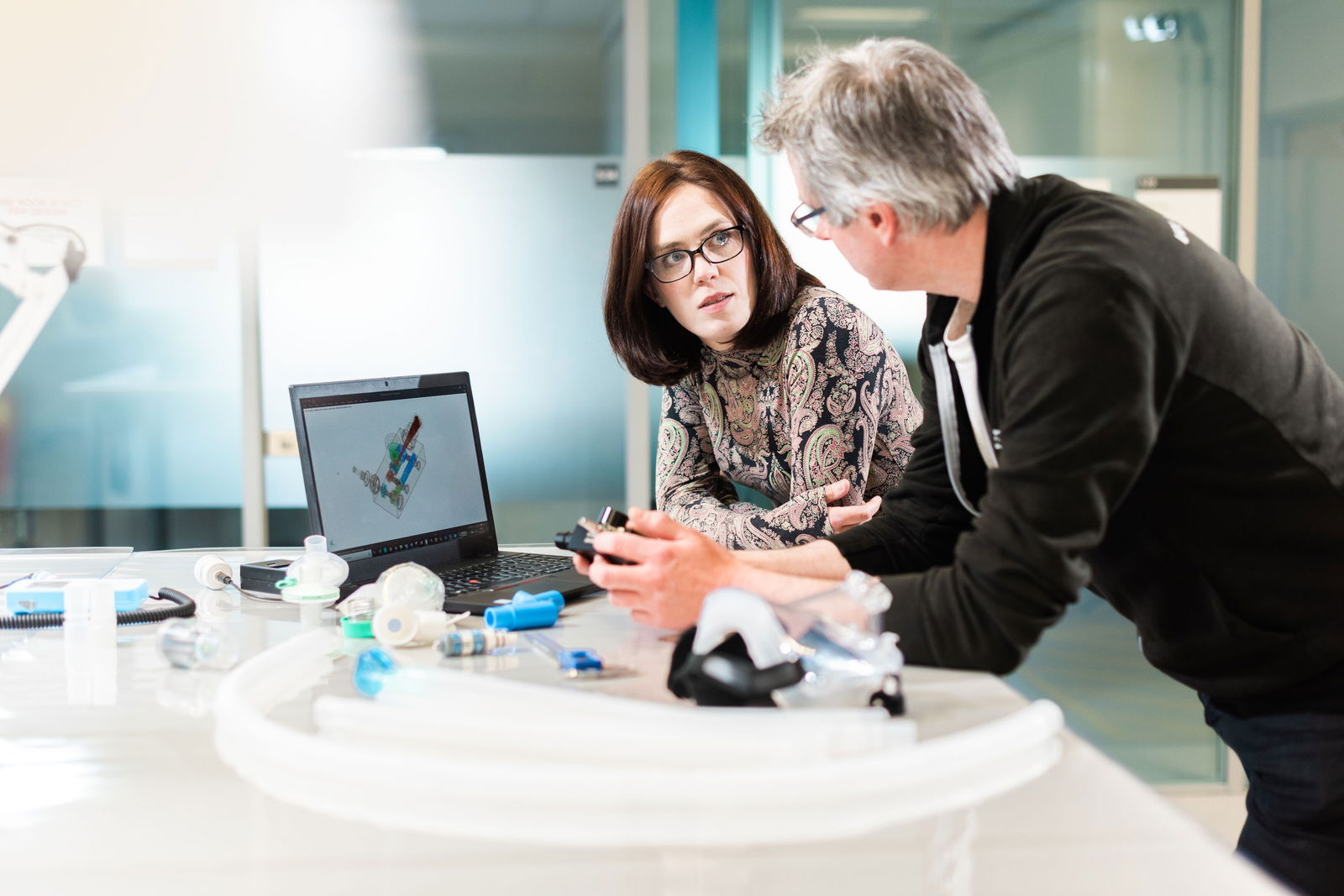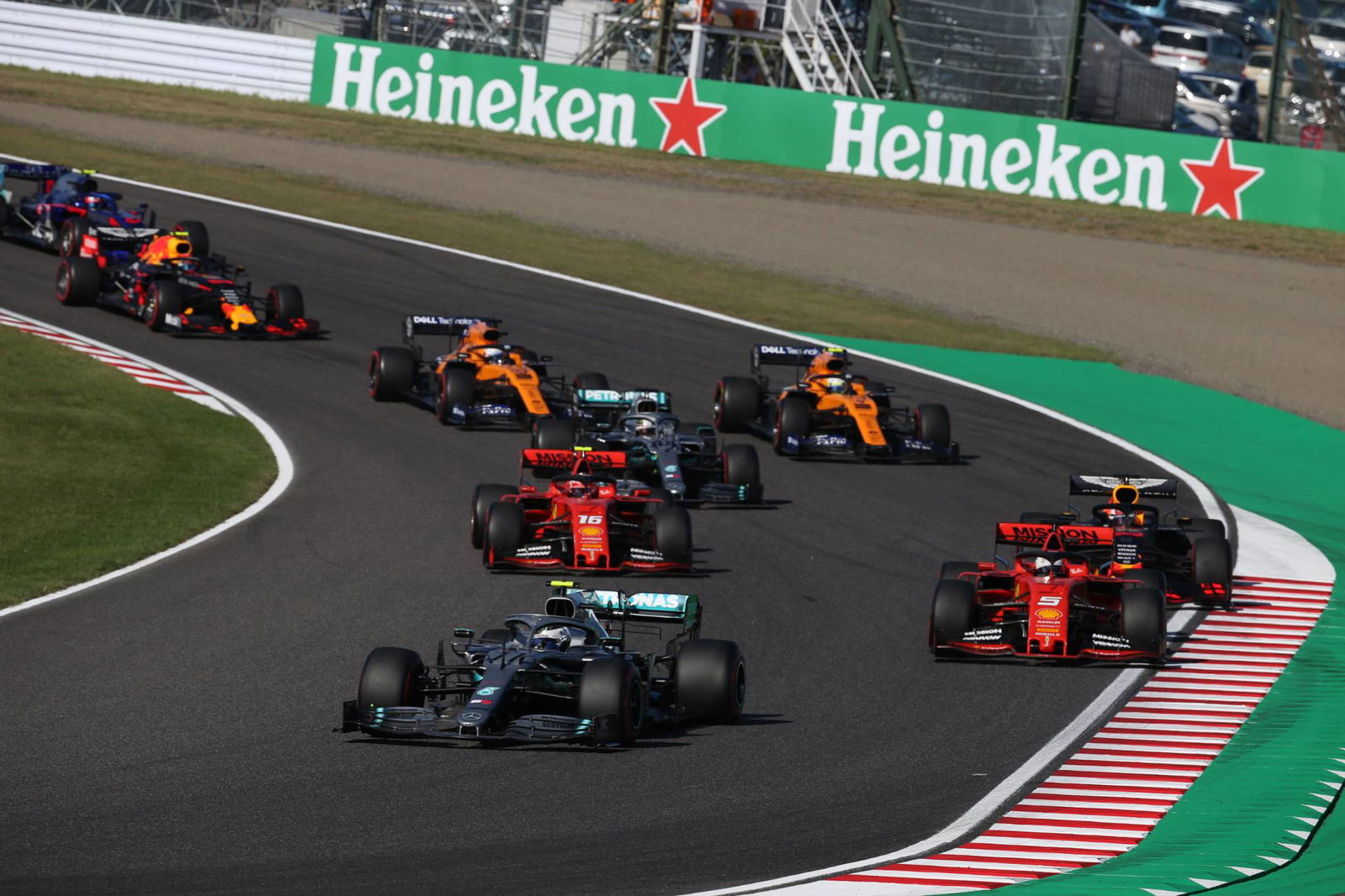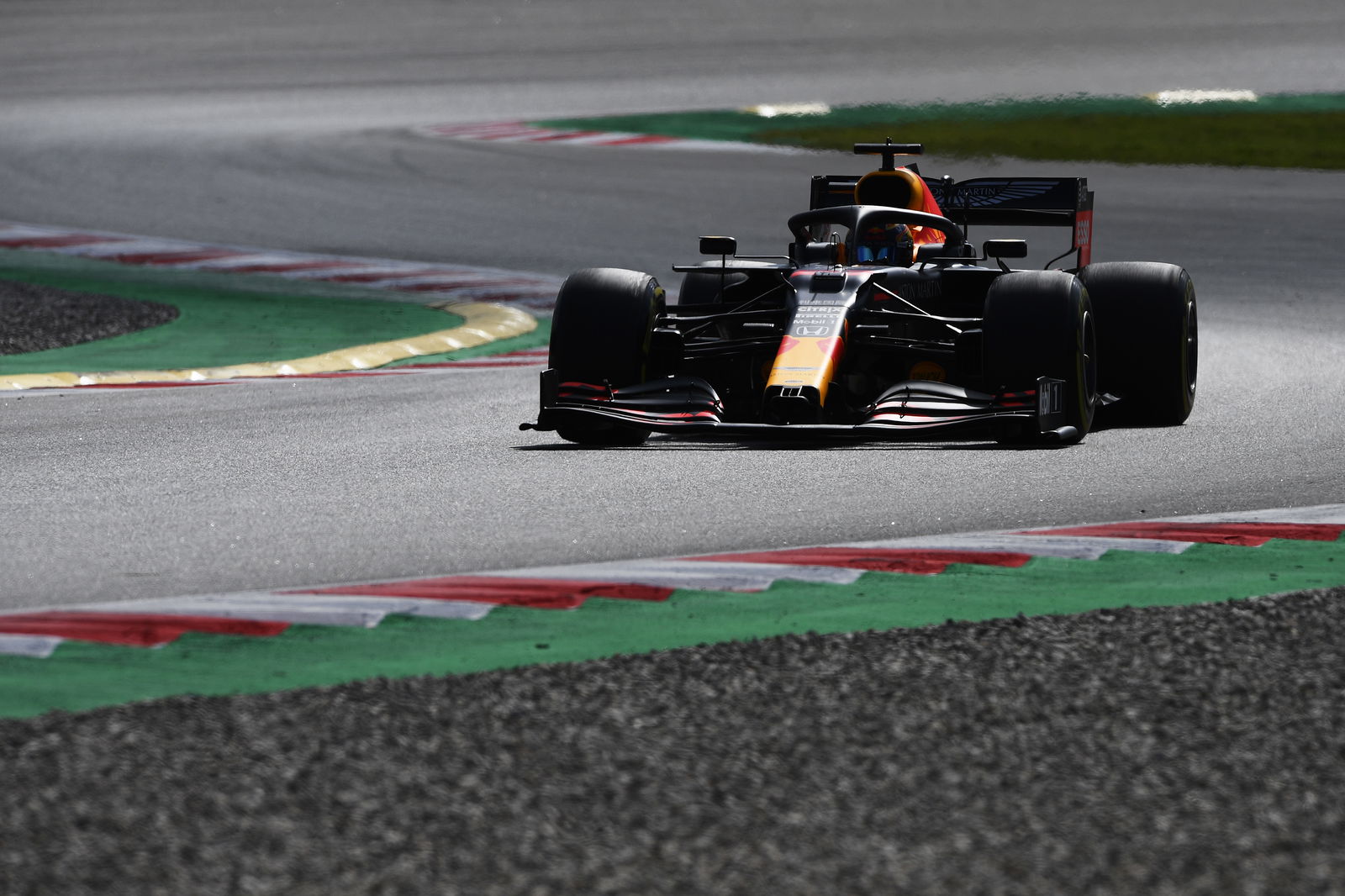How Formula 1 is joining the fight against coronavirus
It is said that times of crisis and disaster can bring out the best in humankind, and seven Formula 1 teams are showing exactly why amid the ongoing coronavirus pandemic.
In its high-octane bubble of speed, on-track drama and off-track politics, the vast technological know-how and brilliance of design required to ensure F1’s wheels remain in motion for nine months of the year can often be forgotten.

It is said that times of crisis and disaster can bring out the best in humankind, and seven Formula 1 teams are showing exactly why amid the ongoing coronavirus pandemic.
In its high-octane bubble of speed, on-track drama and off-track politics, the vast technological know-how and brilliance of design required to ensure F1’s wheels remain in motion for nine months of the year can often be forgotten.
While F1 may be in a state of lockdown amid a hiatus of competitive action due to the global spread of coronavirus, which has wreaked havoc on the 2020 calendar and caused a significantly delayed start to the campaign, seven of the 10 teams are continuing to work tirelessly in the pursuit of innovation.
This time it is not the search to save time, but to save lives.
All seven British teams, Mercedes, Red Bull, McLaren, Renault, Racing Point, Haas and Williams, have come together in a joint collaboration in response to the UK government’s call for assistance to manufacture medical devices to help the relief effort against coronavirus.
A worldwide shortage of life-saving medical equipment – including ventilators – has left global governments reaching out to their respective industry leaders in technology and design to help the much-needed cause.
The F1 teams combined scheme has been termed ‘Project Pitlane’ and is part of a UK industry-wide effort to manufacture and deliver respiratory devices to support the national need. The UK government estimates that the NHS will need at least 30,000 ventilators in order to deal with the potential surge of virus victims, with over 22,000 people in the UK already affected at the time of writing.
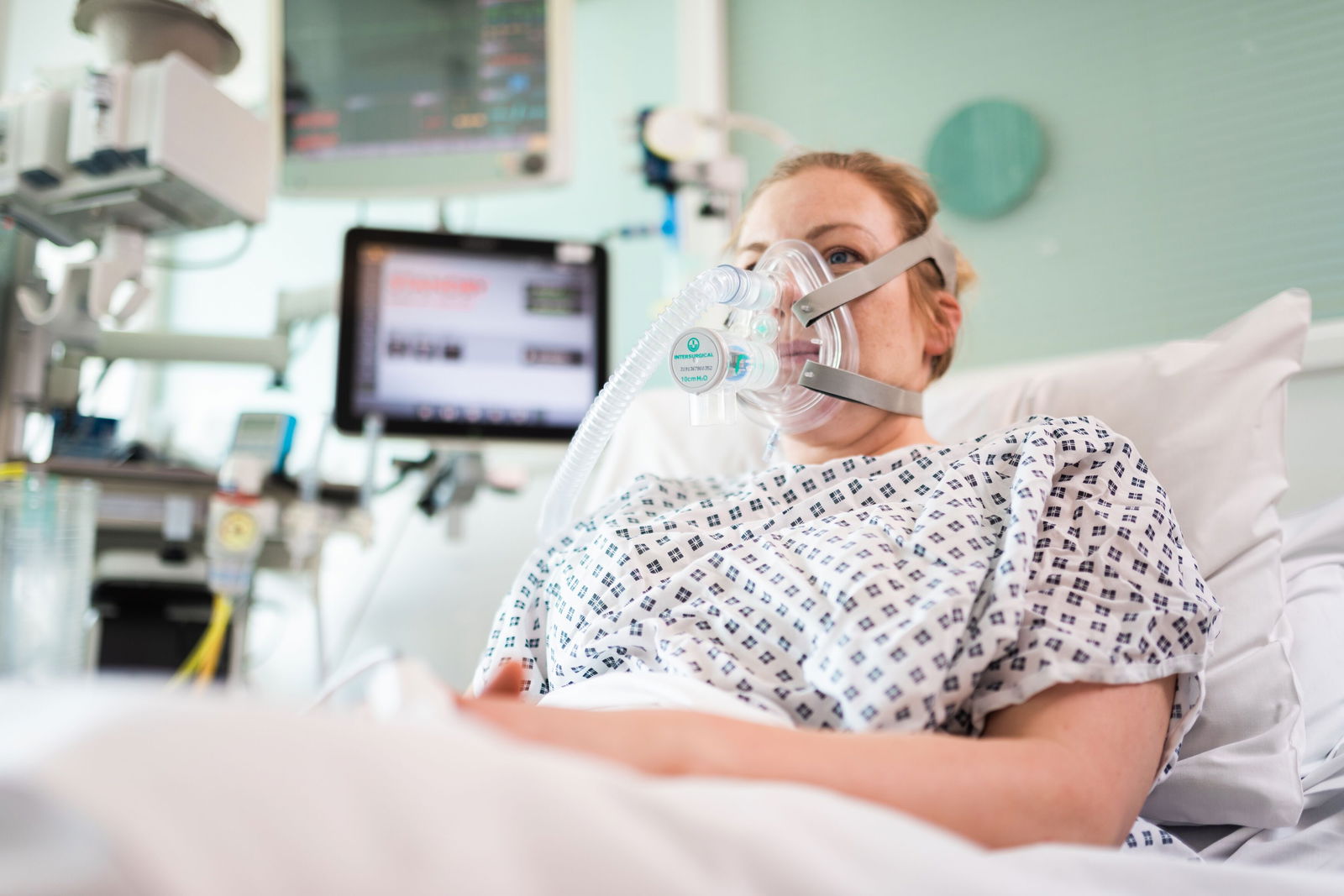
At the forefront of the combined operation is Mark Gillan, a former F1 engineer who is now chief technology officer of Innovate UK. Gillan first approached Formula 1 management about the idea after teams had reached out wanting to provide support and combat the impact of COVID-19 following the cancellation of the Australian Grand Prix.
“On the Sunday March 15 I reached out, knowing that the teams had stopped racing, to a number of my ex-colleagues and Formula 1 Management, to say would there be a way of using the amazing resource that’s in F1,” Gillan explained to Crash.net.
“F1 are probably the world leaders in rapid manufacturing and prototyping of concepts. I got speaking to them over the next couple of days and then on the Wednesday March 18 we had every single UK F1 team around the table, albeit virtually, with FOM and the technical arms of the teams and the engine manufacturers to support a co-ordinated effort to help the UK’s call to arms for respiratory equipment, and a few other devices.
“It was very impressive to see how quickly things moved along. Pretty much everybody I’d spoken to had exactly the same idea. It was a positive response and the teams have been fantastic.”
Project Pitlane is focused on three specific workstreams, varying from reverse engineering existing medical devices, support in scaling the production of existing ventilator designs as part of the VentilatorChallengeUK consortium, to the rapid design and prototype manufacture of a new device for certification and subsequent production.
“Having been in F1 for many years, I would say that we are collectively, if anything, working harder in this shutdown period than before,” Gillan said.
“Ultimately, we need to be delivering and that’s where the concentration of effort is, on those three streams. They are very different streams requiring different skillsets, and I think again that’s where F1 is strong, in that breadth of capability.
“If you take the three streams in essence, they are existing medical devices, ventilator devices, which would be difficult to scale up, so they are being reverse engineered.
“Effectively the teams are helping support consortium to take a design - in some cases they may not have models of those designs - so creating a full digital model and then being able to scale that up. It could even be a slightly simpler version of the system, just to make it easy for scale up.
“The second stream is just pure support of existing ventilator designs as is, and just helping in the manufacturing of the components.
“And the third one is taking concepts, which are early stage prototypes, and rapidly going through the development cycle of those designs and creating a production-ready unit and then pushing that to volume.”
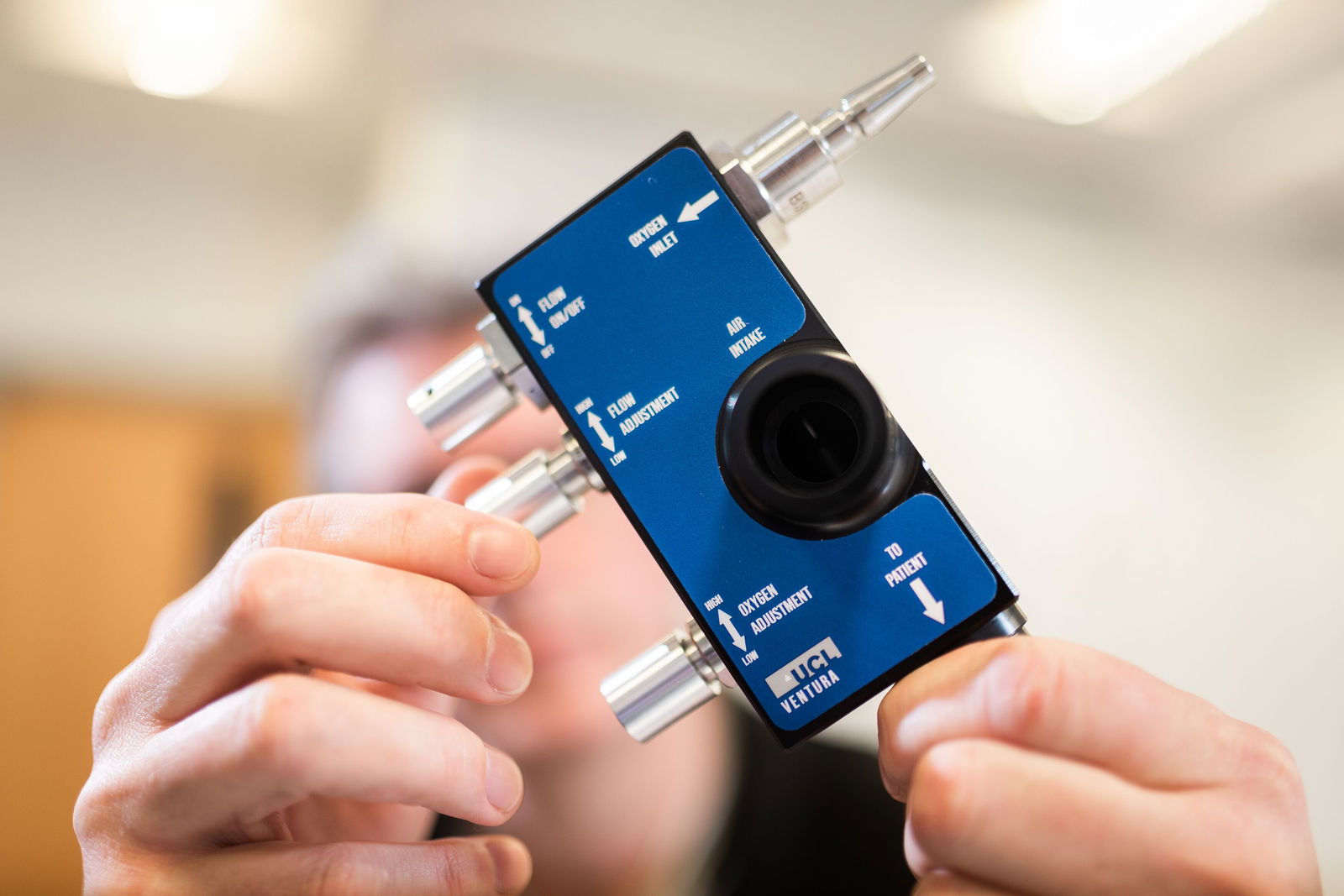
The project is already seeing the fruits of the plan, with the third element of the workstream being actioned by the rapid response of F1 engineering.
On Monday it was announced that Mercedes, together with engineers from University College London and clinicians at UCLH, had created a breathing aid that can help keep coronavirus patients out of intensive care in under a week.
Forty of the Continuous Positive Airway Pressure (CPAP) devices – which are less intrusive to patients as they deliver oxygen to the lungs without needing a ventilator – have been delivered to ULCH and three other London hospitals for trials. If successful, Mercedes will produce up to 1,000 of the CPAP machines per day from its High Performance Powertrain facility in Brixworth, beginning in a week’s time.
While Project Pitlane does not wish to disclose its specific production target, Gillan revealed the seven teams involved are pushing the boundaries to reach the “stretched goal” of medical devices they hope to manufacture.
“In all three streams there is significant progress but there needs to be significant progress to achieve the volumes, and to give you a feel on the third stream, we’ve taken in a new concept design,” Gillan said.
“We had a contact on a Friday night and then on a Saturday afternoon the system was on the bench at one of the teams. Whilst it may be physically in the location of one of the teams, all of the teams in Project Pitlane have members supporting it.
“F1 is a very competitive sport but when things happen its lovely to see everybody working together. I think this is a really important point. Whilst those seven teams are ruthless competitors, they know each other well, they know the people.
“Sometimes when you put seven different companies together you’d have a ramp up time in just understanding people’s processes and ways of working, but as these seven teams, they know each other intimately, so that can be accelerated pretty quickly.”
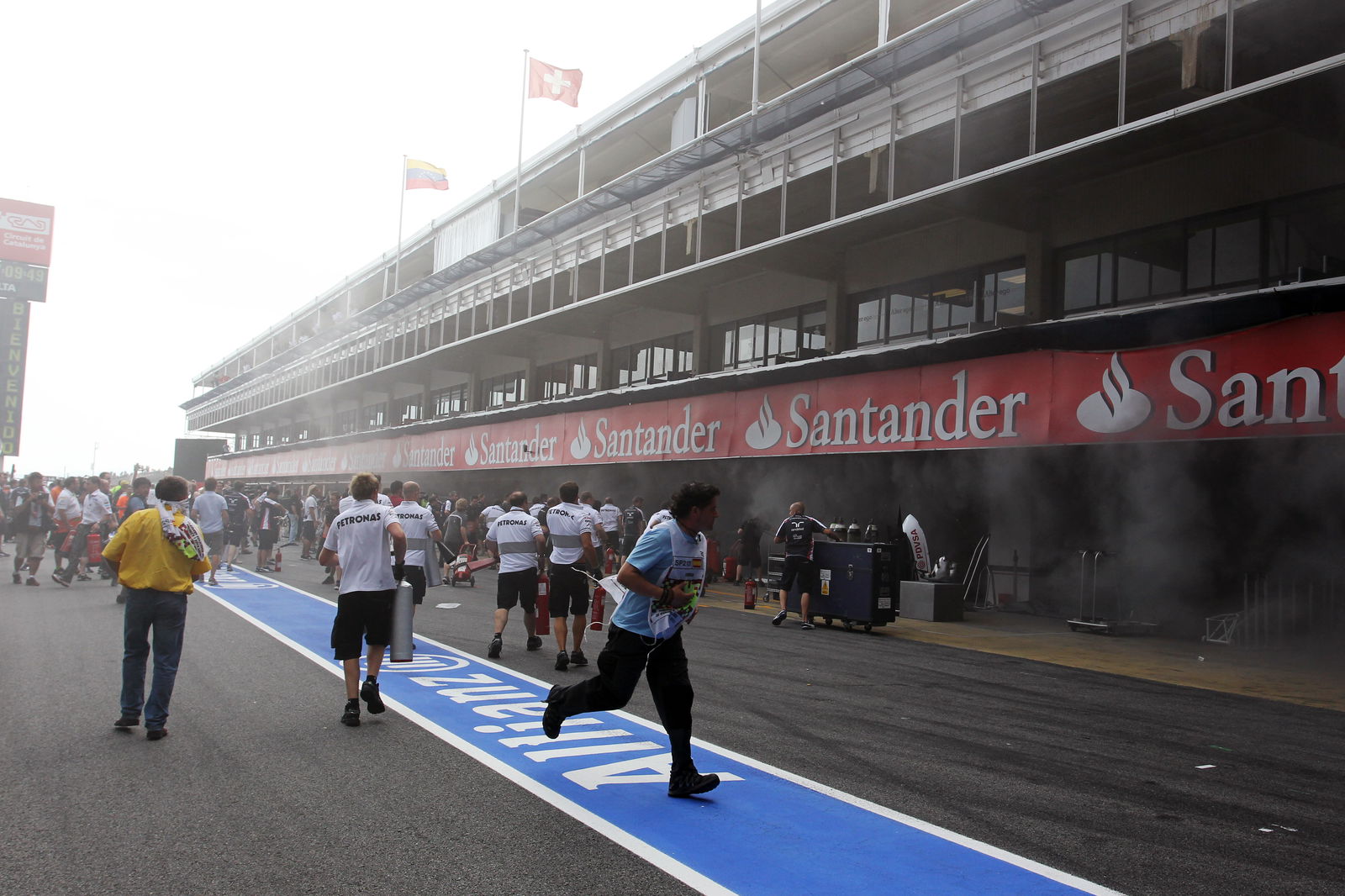
Gillan praised F1’s overwhelming call to arms and believes it “absolutely” highlights the spirit and togetherness of the community as a whole, leading him to recollect the support Williams received from its rivals when a devastating fire spread through the team garage and destroyed its equipment following Pastor Maldonado’s victory at the 2012 Spanish Grand Prix.
“In 2012 when I was running the Williams race team, we won in Barcelona and unfortunately we had a fire in the back of the garage, which literally wiped out all of our equipment,” he recalled.
“We basically lost 90 percent of the equipment. That night we had support from all the teams and then the next week we were back racing in Monaco with borrowed equipment from the teams.
“Despite being in the middle of a season and competing hard and having just shown a bit of performance having won the previous race, the team’s rallied around and lent us their equipment, and without that we wouldn’t have been able to go racing.
“That wasn’t lost on me. There’s that typical fighting tooth and nail as a a competitor side, but actually there is a strong spirit and camaraderie among the teams, and that’s very much in evidence at the moment.”
It is not just F1 teams themselves getting involved either. INEOS, Mercedes' principle partner, has recently constructed two purpose-built factories and is in the process of producing one million bottles of hand sanitiser per month to help combat the coronavirus pandemic amid a critical shortage of hand sanitisers across Europe. Meanwhile, the Agnelli family who control Fiat and Ferrari have donated 10 million euros to help the relief effort in Italy.
Due to the size of the task at hand, Gillan acknowledges that Project Pitlane is racing “against the clock” but that, after all, is what F1 teams live for.
